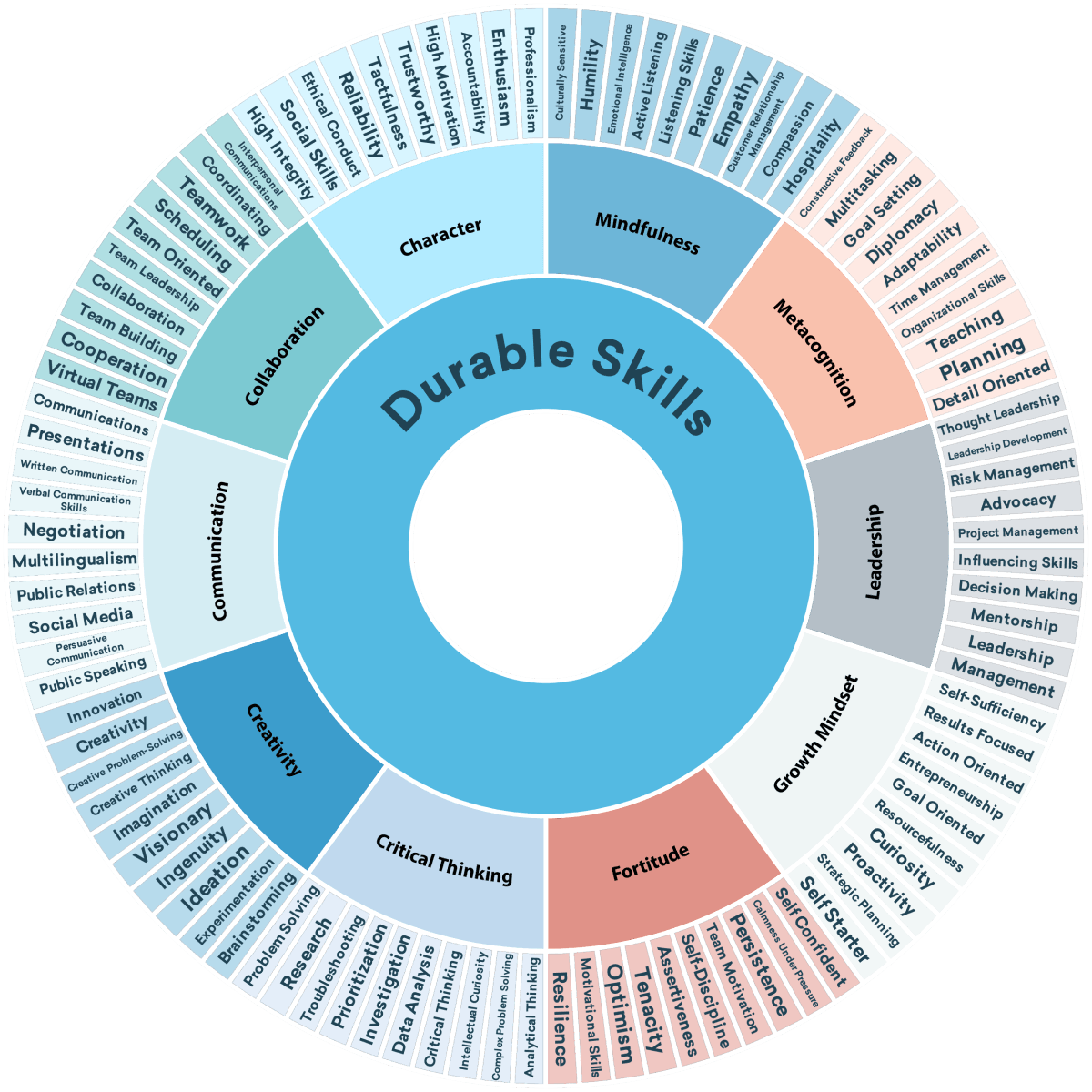We’ve all heard about the importance of Durable Skills for students’ future careers.
But here’s the catch: there’s confusion and uncertainty about what these skills really are and how they matter in the real world. There’s an urgent need to bridge the gap.

Imagine having a common language to speak about these skills that translate from education into the workforce.
That’s where the Durable Skills Advantage Framework comes in – the Framework is a first-of-its-kind, employer-generated common lexicon for these essential non-technical skills. Consider it your go-to guide, complete with four performance levels, for all ten Durable Skills competencies and sub-skills.
This tool – ready and available for various education, workforce, and employer uses – will help catalyze a more holistic approach to developing every student’s unique potential and improving pathways into economically mobile careers.
Created in partnership with CompTIA and more than 800 stakeholders from across the country, the Durable Skills Advantage Framework establishes a common lexicon for Durable Skills that can be an asset across a wide range of uses – programs, products, platforms, and more.
Join us on this transformative journey as we shape a future where Durable Skills empower learners and contribute to a more inclusive, thriving workforce. Download the Framework today.
We invite anyone passionate about ensuring learners succeed in their careers to download the Durable Skills Advantage Framework.